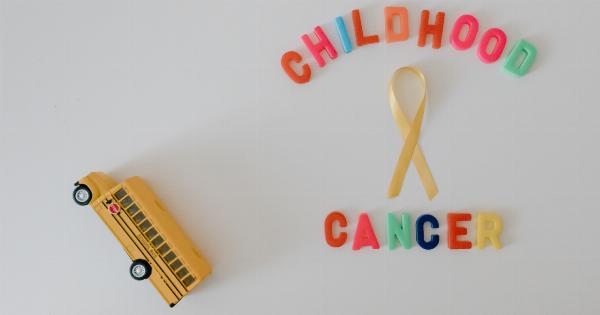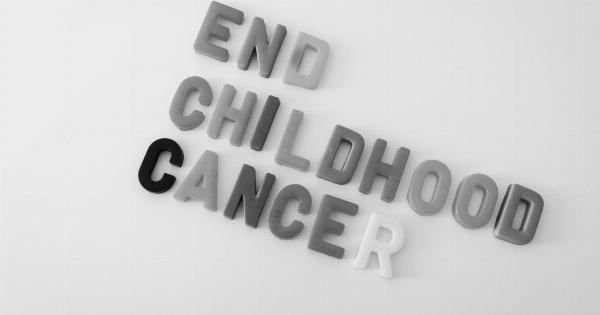Childhood cancer is a serious and devastating illness that affects a large number of children all over the world. While there is no single cause of childhood cancer, there are many factors that can increase the risk of developing this disease.
One of these factors is the diet of pregnant women, which has been found to have a significant impact on the likelihood of their child developing cancer later in life.
What is Childhood Cancer?
Childhood cancer is a broad term that is used to describe a variety of different types of cancer that affect children.
While rare, childhood cancer is still a significant health concern, and it can have a profound impact on the lives of both the children who are suffering from cancer and their families.
Why is Diet During Pregnancy Important?
The diet of pregnant women is critical for the health of their developing fetus.
What a woman eats during pregnancy not only impacts the health of her baby while in the womb, but it can also affect their long-term health, including their risk of developing serious diseases such as cancer.
Research has shown that a mother’s diet can have a significant impact on the development of her child’s immune system, which plays a critical role in protecting them from infections and diseases, including cancer.
A healthy diet during pregnancy can also help to ensure that the fetus develops correctly, which can reduce the risk of birth defects.
The Link between Pregnant Women’s Diet and Childhood Cancer
Several studies have investigated the link between the diet of pregnant women and the risk of childhood cancer in their offspring.
One such study published in the International Journal of Epidemiology found that women who consumed high levels of foods with a high glycemic index (such as processed foods and sugary drinks) were more likely to have children with acute lymphoblastic leukemia (ALL), the most common form of childhood cancer.
Another study published in The Lancet found that women who consumed higher levels of saturated fat during pregnancy were more likely to have children with acute myeloid leukemia (AML), a rare but aggressive form of childhood cancer.
The study also found that children born to mothers who smoked during pregnancy were more likely to develop AML than those born to nonsmoking mothers.
What Should Pregnant Women Eat to Reduce the Risk of Childhood Cancer?
While more research is needed to fully understand the link between pregnant women’s diets and childhood cancer, there are some dietary recommendations that can help to reduce the risk of this disease in their offspring.
First and foremost, pregnant women should aim to eat a healthy and balanced diet that includes plenty of fruits, vegetables, whole grains, and lean protein sources.
They should also avoid consuming excessive amounts of saturated fat, processed foods, and sugary drinks, all of which have been linked to an increased risk of childhood cancer.
Moreover, pregnant women should consider taking prenatal supplements that contain key vitamins and minerals that are critical for the development of their fetus.
For example, folic acid has been shown to reduce the risk of neural tube defects in babies while Vitamin D is important for bone growth.
Conclusion
The link between pregnant women’s diets and the risk of childhood cancer in their offspring is still being investigated, but early research suggests that what a woman eats during pregnancy is critical for her child’s long-term health.
Focusing on a healthy, balanced diet and avoiding excessive amounts of processed foods and sugary drinks can help to reduce the risk of childhood cancer, and ensuring adequate intake of key nutrients through prenatal supplements can further support healthy fetal development.
























